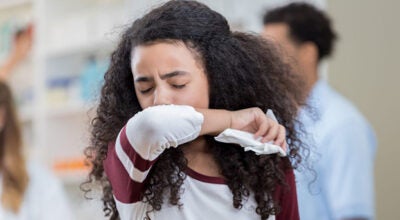Talking About Parenting: Taboo subjects give reasons to open conversations
Published 10:37 am Wednesday, May 30, 2018
By Chris Kovatch
This past week the second season of the highly controversial Netflix series Thirteen Reasons Why was released. This series is based on a book by the same name that was published in 2007.
Prior to the series’ release and over the past year, I have read several very different opinion pieces on the series on several different platforms. Views in the pieces ranged from appreciation of discussion of several difficult topics to extreme outrage and disgust on its content. It was quite evident on several of the posts that were not in favor of the series that the authors had not even watched the series to base their opinion.
I truly believe that for me to offer an educated opinion on something, I must be familiar with the subject matter. Will everyone agree with my opinion? No. Are there more factors present than the ones I discuss below? Definitely. Regardless of whether you support the show or not, I think in the end the fact that this show makes us talk about things is paramount.
When I watched the first season, I was a little apprehensive about what I would view. When I was in school, the topics of suicide, bullying, and recreational drug use among others were almost taboo. While I knew these things were going on, they weren’t really something that was discussed in an open forum.
This series has helped bring these issues along with several others into a space where they can be addressed. This is also allowing prevention strategies to be implemented, and treatment can be pursued by individuals who are struggling with these issues.
Many have said this series glamorizes suicide, but I think that’s an unfair assessment. It presents a realistic view of the aftermath of suicide and the repercussions that those left behind must deal with.
It also brings to the forefront the trials that kids face today. I must say that the world is a much different place than it was even 19 years ago when I graduated from high school.
The language in the show can be harsh and the visuals are quite realistic and bring about gut-wrenching feelings when you watch them. The sad fact is that what is portrayed in the show isn’t something that only happens in the movies, its something that kids are having to deal with every day.
Do I think this series is for everyone? ABSOLUTELY NOT. Its content is absolutely for a more mature audience, which is why I plan to control at what age my kids watch it. Younger children DO NOT need to have access to this.
As parents, we must ensure that only age appropriate viewers see it. Parental controls are one tool that can help us ensure our children don’t see things that they shouldn’t. Our presence and knowledge of what they are watching is the one we should rely on the most.
On the flip side, I must trust my children too. They know my expectations and I truly hope that they realize they are there for a reason.
This show can be utilized as a tool that parents can use to help reinforce the concepts that bullying someone is not right; that drug use has real consequences and can ruin your life; that life is sacred; and that a person’s body is their own and no one has a right to violate that basic human right.
The second season takes on several new issues while continuing to address ones from the first season.
What I admire most about this show is that it brazenly, yet responsibly, poses questions that need to be asked.
In my lifetime, several people that I have known on different levels have taken their own lives. I wish that I somehow could have prevented it. If this series helps save one life, then it’s all worth it.
I want to end this article with something from the show. The title is 13 Reasons Why. The title is important because the character that took her life, Hannah Baker, came up with 13 reasons why she should end her life.
After Hannah’s death, her mother finds a list of reasons why she should not end her life; she only came up with 11. Her mother presents the reasons why not to her close friend Clay Jensen, who contributed to two of the reasons why not to end her life, she very importantly says that no matter how many reasons there might be why, there are always more why not.
There is not a more truer statement that I could share.
The show has created awareness and opportunity for resources for those who may need them. If you or anyone that you know needs help finding support or crisis resources, please go to 13ReasonsWhy.info for more information.
In the end, we must take a hard look at why a series like this even exists. There is no denying the problems that our kids face today. There are a number of forces that help create these problems and we can’t control all of them.
What we can control is how we parent our children, the type of homes they grow up in, the freedom and comfort to discuss things with us, and to realize that not all kids are fortunate to have a support system.
Sometimes we need to step outside of the comfort zone of our biological family and lend a hand to other kids who need the support.





